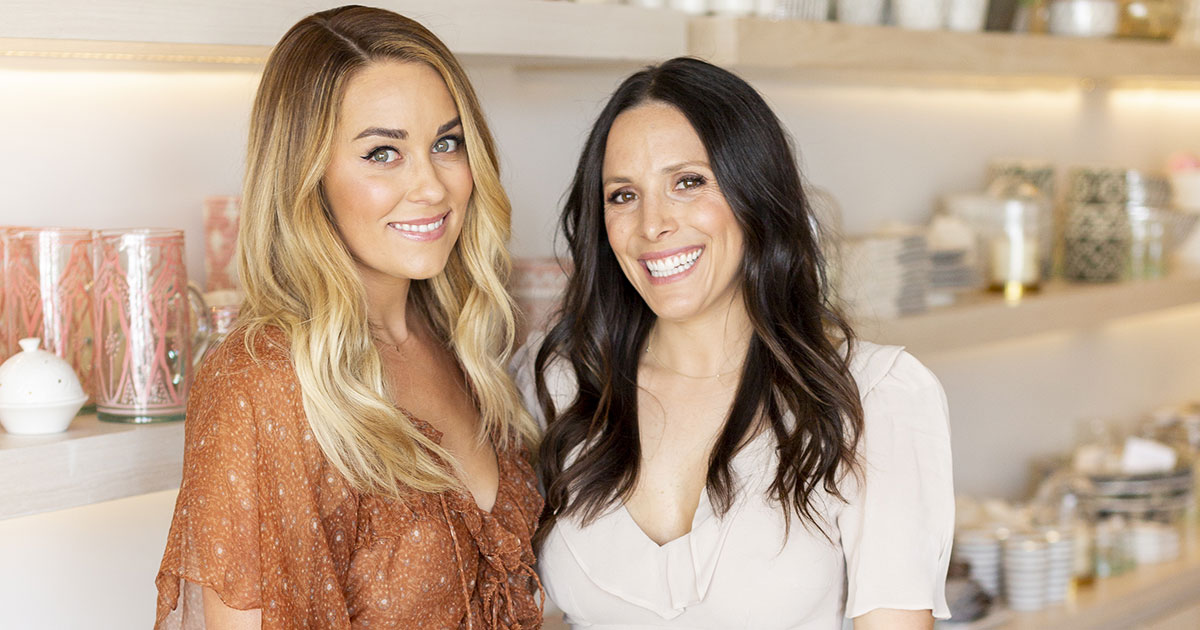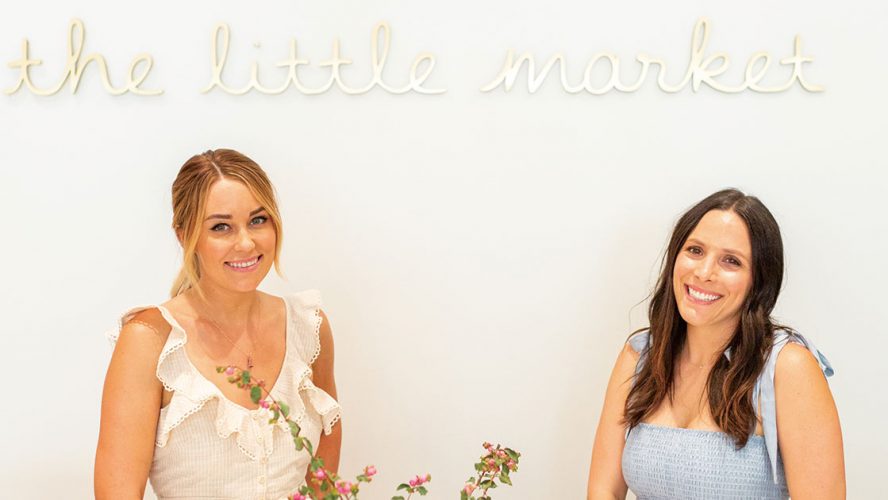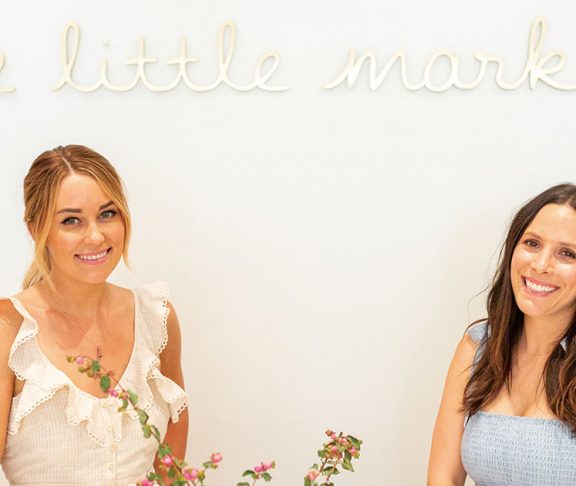Star of “The Hills” and fashion designer Lauren Conrad talks about starting a nonprofit with her best friend, Hannah Skvarla. The Little Market is a fair-trade shop that supports female artisans around the world.
What was the motivation behind starting The Little Market?
Hannah Skvarla: Growing up, my family encouraged me to make giving back part of my everyday life. I spent a lot of time volunteering with nonprofits and traveling with nonprofits to see their work on the ground. When I would come home from trips and tell Lauren about the work I saw and the women I met, she wanted to get involved. We planned a trip to Africa to visit with nonprofits supporting women and children to look for a way for her to give back.
Lauren Conrad: I was inspired by the work Hannah was doing, and I wanted to do something for women. While traveling together, we met with incredible women who just wanted to be able to support themselves and their family. Many of the women were already making beautiful, handmade items. Often, the skills used to make the items were passed down from generation to generation. We realized that by creating a platform to sell artisan-made goods, we could help women create income for themselves while preserving culture. Through The Little Market, we connect artisan-made goods with consumers. The more products we sell, the more women we can help all over the world.
How have you used The Little Market to help empower women across the world?
HS: We actively advocate for human rights and strive to raise awareness for social justice issues. Many of the women we work with are from marginalized communities and don’t have the same rights as we do. It’s really important to us that we bring attention to the issues they face, which range from forced migration to trafficking to homelessness.
LC: Our mission is to support the economic empowerment of women in need all over the world through dignified job opportunities. We have seen that investing in women truly has the power to transform communities. When women in marginalized communities receive fair wages for their work, they enjoy more of the rights they deserve. They can send their children to school, purchase healthier food and cleaner drinking water and feel more empowered to use their voices. As mothers ourselves, we are even more motivated to work as hard as we can to advocate for women’s and children’s rights.

What do you look for in the partnerships with these female-led artisan groups?
HS: We look for a few different things. A fair-trade expert on our team conducts research to ensure that our partners implement fair-trade practices. For example, through fair trade, the group must provide a safe and supportive working environment free of discrimination, ensure fair and prompt pay, strive for environmentally friendly practices, and provide essential resources for skill development.
LC: We look for groups that are doing incredible work for women in need. Bright Endeavors, our partner in Illinois, works with at-risk young moms who have experienced domestic violence and homelessness. Prosperity Candle, our partner in Massachusetts, creates job opportunities for female refugees from Congo and Burma. The Downtown Women’s Center creates jobs for women who were formerly homeless.
What advice would you give to female entrepreneurs looking to follow in your footsteps and start their own non-profit business?
HS: I would say it’s important to get as much experience as you can before you officially take the leap into entrepreneurship. Before Lauren and I started The Little Market, I interned at the Human Rights Watch and learned invaluable lessons by witnessing firsthand the incredible work they do on the ground. Even if it’s not a formal internship per se, you can always find a charitable organization to volunteer with in your community or you can join a service club in school. When you get to know the field you’re going into as much as you can and find your niche, you will have a great advantage.
LC: Figure out what cause you are most passionate about and how you want to support that cause. Then, identify your personal strengths and how you can best use those tools to make a difference. It’s also important to learn what it means to run a nonprofit.

